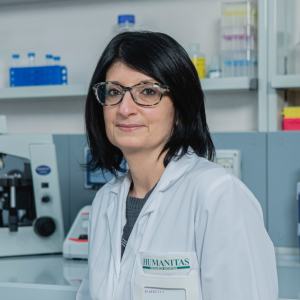Research Group
Cassani Group
Immunity and Immunodeficiency Lab
Our lab aims to understand how adaptive immunity interacts with tissue microenvironment components – including microbiota at barrier sites – in the development of bacterial infections and tumorigenesis, as well as primary immune deficiencies (PIDs).
The challenge
There is increasing evidence that disruption/dysregulation of the adaptive immune system interacts with tissue microenvironment, including microbiota, to contribute to the progression of diseases such as immunodeficiency and autoimmunity, resistant bacterial infections and tumors. Understanding these complex relationships could be exploited to identify therapeutic targets and define novel therapies that are relevant for different clinical settings and challenges. To accomplish this goal, we combine immunological studies in patients, relevant disease and infectious models, as well as state-of-the-art high-throughput technologies.
Main research areas
Role of host-microbiota interactions in the pathogenesis of primary immune deficiencies
Most genetic defects causing primary immune deficiencies (PID) lead also to perturbations in immune surveillance at the intestinal barrier, uncovering non-redundant pathways required for intestinal colonization by critical commensals. Consistently, a substantial proportion of PID patients presents with clinically challenging inflammatory bowel disease-like pathology. In our lab we focused on two PID, Omenn syndrome and Chronic Granulomatous Disease, and demonstrated that dysbiosis and loss of tolerance to commensals have a substantial role in determining the distinctive immune dysregulation and inflammatory processes.
Understanding the mechanisms controlling host-microbe interactions during bacterial infections
Disease tolerance and resistance are two mechanisms used by multicellular organisms to control tissue damage induced by an infection. Understanding how these two branches of the host response regulate each other or the conditions in which one prevails over the other is of fundamental importance to fight infections while preserving tissue integrity. We identified Dipeptidyl peptidase 3 (DPP3), a cytosolic ubiquitous metallopeptidase involved in the hydrolysis of many bioactive peptides, as a key player in the regulation of disease tolerance and resistance during K. pneumoniae infections.
Dissecting the interplay between adaptive responses and cellular senescence in tumorigenesis
Hepatocellular carcinoma (HCC) is a frequent neoplasia and a leading cause of inflammation‐related cancer mortality. Despite that most HCCs arise from persistent inflammatory conditions, pathways linking chronic inflammation to cancer development are still incompletely elucidated. We recently demonstrated that adaptive immunity sustains liver fibrosis and favors HCC growth in chronic injury, by modulating innate components of inflammation and limiting the extent of hepatic stellate cells’ cellular senescence.
Selected publications
Microbiota dysbiosis influences immune system and muscle pathophysiology of dystrophin-deficient mice.
Cellular Senescence in Immunity against Infections.
Defective dystrophic thymus determines degenerative changes in skeletal muscle.
Cutaneous barrier leakage and gut inflammation drive skin disease in Omenn syndrome.
Absence of Dipeptidyl Peptidase 3 Increases Oxidative Stress and Causes Bone Loss.
The microbiome and immunodeficiencies: Lessons from rare diseases.
Efficacy of lentivirus-mediated gene therapy in an Omenn syndrome recombination-activating gene 2 mouse model is not hindered by inflammation and immune dysregulation.
B lymphocytes limit senescence-driven fibrosis resolution and favor hepatocarcinogenesis in mouse liver injury.
Intestinal microbiota sustains inflammation and autoimmunity induced by hypomorphic RAG defects.
Lentiviral-mediated gene therapy restores B cell tolerance in Wiskott-Aldrich syndrome patients.
Gut-tropic T cells that express integrin α4β7 and CCR9 are required for induction of oral immune tolerance in mice.
Blocking lymphocyte localization to the gastrointestinal mucosa as a therapeutic strategy for inflammatory bowel diseases.
Homeostatic expansion of autoreactive immunoglobulin-secreting cells in the Rag2 mouse model of Omenn syndrome.
Integration of retroviral vectors induces minor changes in the transcriptional activity of T cells from ADA-SCID patients treated with gene therapy.
Gene therapy for immunodeficiency due to adenosine deaminase deficiency.
Human osteoclast-poor osteopetrosis with hypogammaglobulinemia due to TNFRSF11A (RANK) mutations.
Altered intracellular and extracellular signaling leads to impaired T-cell functions in ADA-SCID patients.
Multilineage hematopoietic reconstitution without clonal selection in ADA-SCID patients treated with stem cell gene therapy.
Group members


